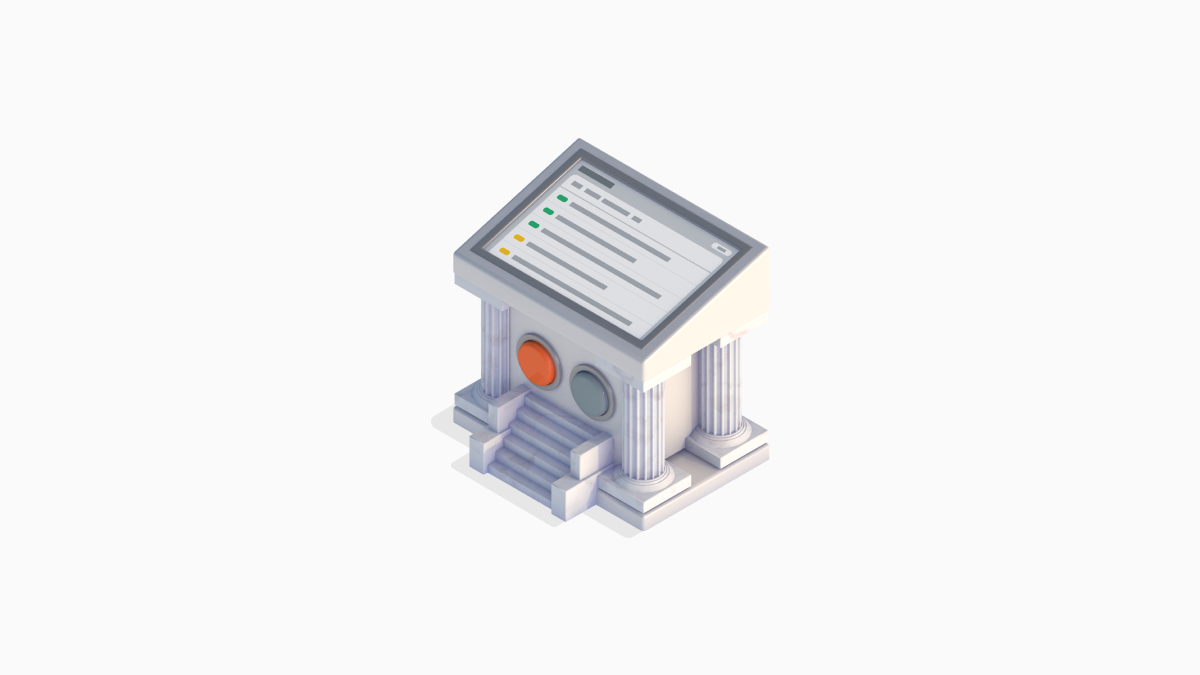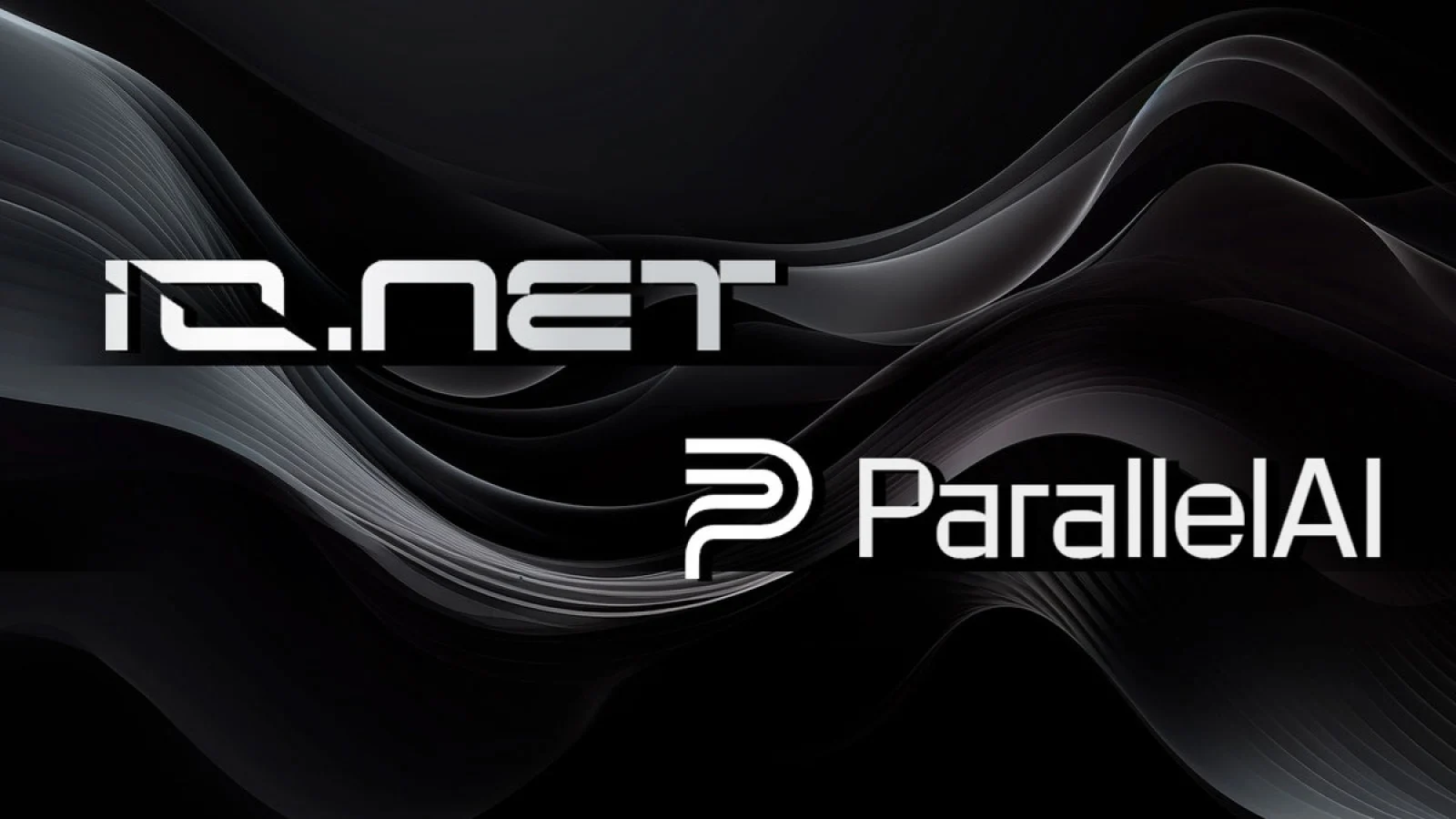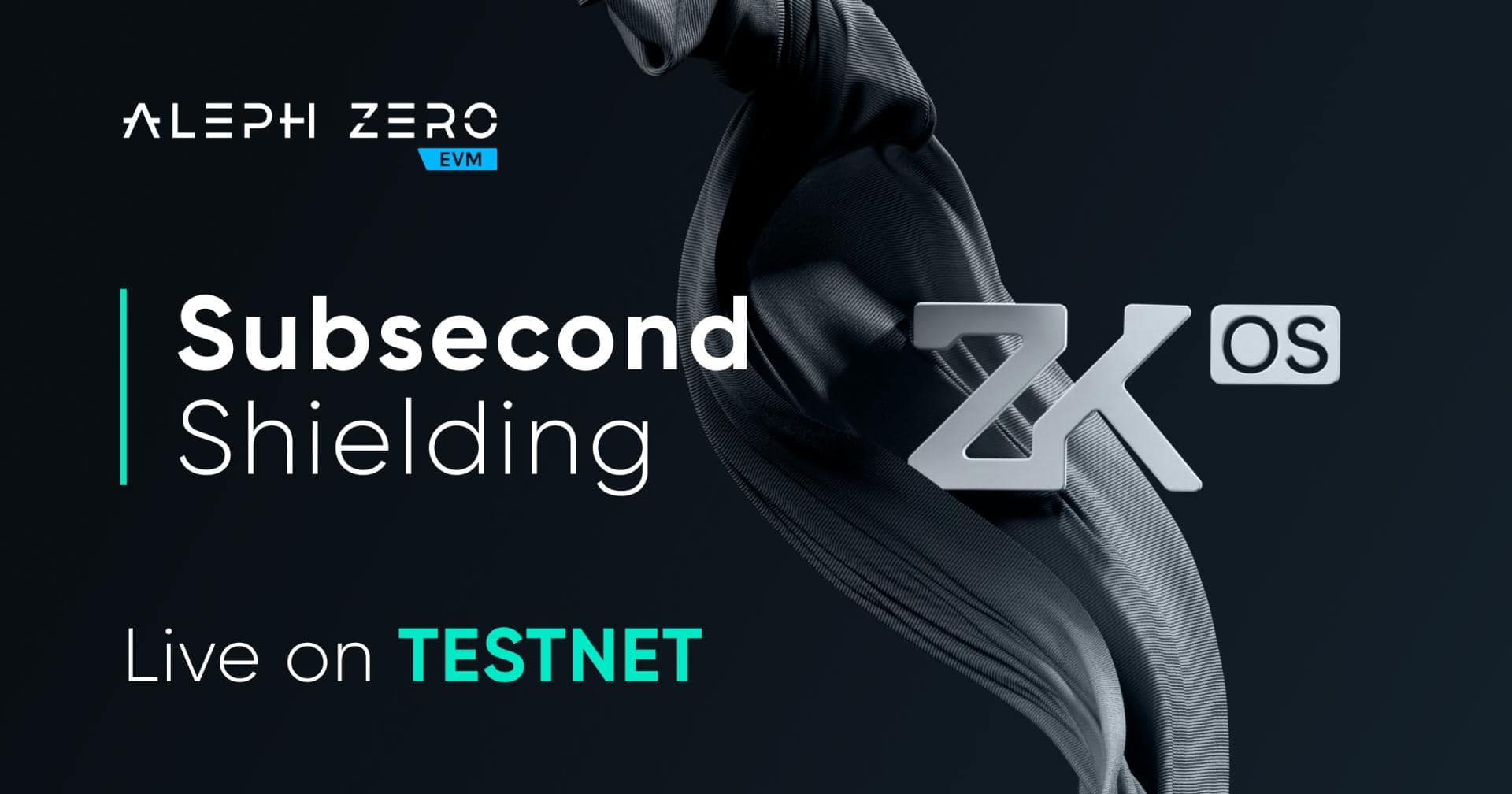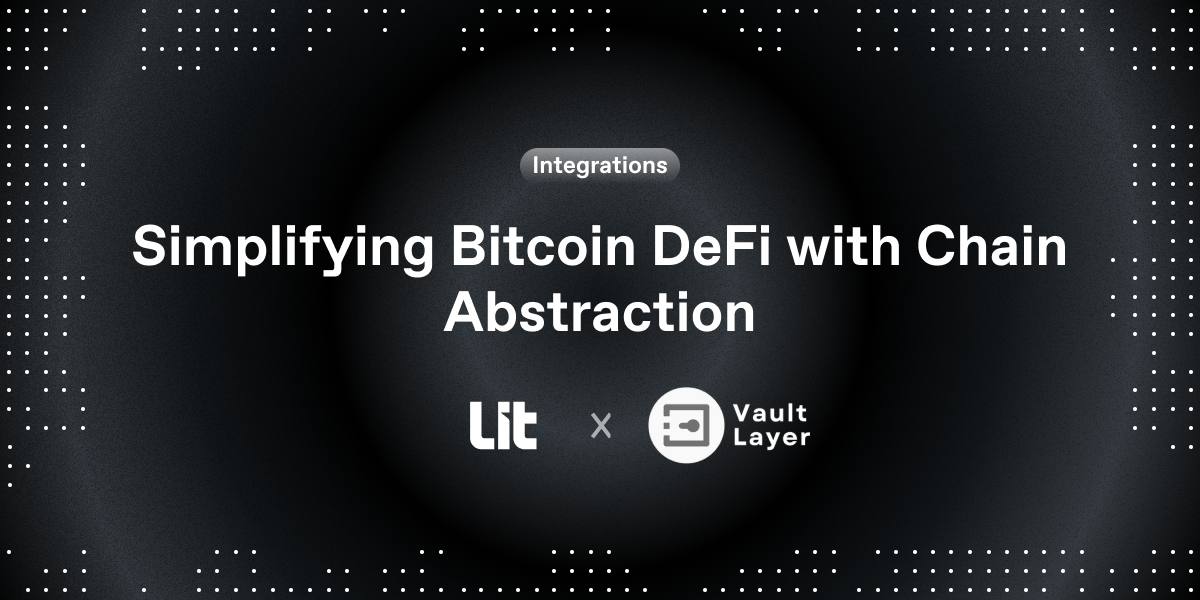Latest Multiple Network News

a year ago
Verida Recognized as Finalist in Finder Innovation Awards for Decentralized Data Storage
Verida has been recognized as a finalist in the Digital Assets & Web3 Innovation category of the 2024 Finder Innovation Awards, highlighting its groundbreaking efforts in decentralized data storage. The Finder Innovation Awards aim to honor brands and organizations that enhance user experiences, and Verida's focus on privacy and data protection aligns perfectly with the core values of the cryptocurrency and Web3 sectors. By offering private, encrypted data storage that complies with regulations like GDPR and CCPA, Verida empowers users to manage sensitive information without exposing personally identifiable information on the blockchain.
As artificial intelligence continues to evolve, concerns about the misuse of sensitive user data are growing. Verida addresses these issues by allowing users to withdraw their private data from major online platforms, thereby preventing it from being utilized in AI training models. This innovative approach enables users to create and control their own 'digital twins', ensuring that they can manage what data is shared with AI systems. Furthermore, Verida's global, region-aware design provides users with the flexibility to choose their data storage locations, making it a scalable solution for the Web3 market both locally and internationally.
In addition to its data storage capabilities, Verida has launched the Verida Wallet, the first mobile crypto wallet to incorporate Polygon ID zero-knowledge credentials. This wallet supports multiple networks, including Polygon, Ethereum, and NEAR, allowing users to manage and trade cryptocurrencies and NFTs seamlessly from their mobile devices. With over 80,000 digital identities created across its testnet and mainnet, Verida demonstrates a strong demand for enhanced control over private data in the crypto space. Its commitment to a privacy-first approach in digital wallets positions Verida as a leading innovator in the Web3 landscape.

a year ago
XProtocol Announces Launch of Crypto-Powered Android Phone XForge
XProtocol has officially announced the launch date for its innovative crypto-powered Android phone, the XForge, set for October 30, 2024. This entertainment-focused Ethereum layer-3 network is offering a pre-sale of 10,000 units, each priced at $299. The launch follows a successful Xardian node sale aimed at empowering and rewarding communities. According to Dragonix, a contributor to XProtocol, the initial pricing is expected to increase after the first batch. Each phone will also come with free Xardian Nodes, allowing users to participate in the DePIN network and earn various cryptocurrency-based incentives directly from their devices.
In addition to the phone launch, XProtocol has completed multiple fundraising rounds totaling $5.2 million, with participation from notable investors such as Dragonfly Capital, Coinfund, and Razer. The company’s unique proposition lies in its use of Base superchain technology, which provides a scalable and developer-friendly platform for entertainment and gaming projects. XProtocol is compatible with all Ethereum Virtual Machine (EVM) projects, facilitating easy migration and offering tools for developers. The upcoming dApp store on the phone will serve as a gateway for users to access web3 applications built on the XProtocol superchain.
The XForge is designed with high-end specifications tailored for gaming, featuring an Octa-Core CPU, Dual Nano SIM capability, a 6.67” AMOLED display, 8GB of RAM, and 256GB of storage. The inclusion of Xardian nodes aims to enhance network decentralization, with operators earning rewards for their participation in the consensus process. Furthermore, XProtocol has locked in 20% of its total token supply for node license holders, to be distributed over 36 months following the mainnet launch later this year. With a team experienced in web3 gaming, XProtocol is poised to revolutionize blockchain-based gaming, enabling creators to develop and scale consumer-focused products effectively.

a year ago
Streamr Reaches 1.0 Mainnet Milestone and Focuses on Protocol Adoption
The Streamr team has reached a significant milestone with the completion of their 1.0 Mainnet, marking the end of their 2017 roadmap. This achievement allows the team to transition from research and development to focusing on full protocol adoption. The overarching goal remains to revolutionize the data streaming landscape through decentralized, peer-to-peer technology. The team has successfully built a feature-complete decentralized publish/subscribe network, incorporating elements such as censorship-resistant messaging, end-to-end encryption, and a robust tokenomics model designed to incentivize operators. However, the journey ahead involves redefining a multi-billion dollar industry dominated by established players, and the team is calling for community support to achieve this vision.
Currently, the Streamr DAO is voting on SIP-22, which proposes to unlock an additional 100 million DATA tokens from reserves to fund ongoing development as existing funds are projected to run out early next year. The current monthly project expenses are around $230,000, with a notable decrease in development costs since the completion of major tech building blocks. The allocation of resources is strategically focused on marketing, protocol development, and operational costs, with the aim of achieving a 30% growth in network usage and diversifying funding sources. The team is also prioritizing the delivery of high-profile use cases, including live video broadcasting, to demonstrate the network's capabilities.
Streamr is actively pursuing commercial adoption across various sectors, including decentralized physical infrastructure networks (DePIN), live video streaming, defense communications, and AI integration. The team has onboarded multiple partners and is exploring innovative use cases that leverage the unique strengths of the Streamr Network. With a focus on enhancing video delivery and establishing secure communication channels for defense applications, Streamr aims to position itself as a leader in decentralized cloud technologies, contributing to a more resilient data management ecosystem. As the community prepares to vote on SIP-22, the team emphasizes the importance of collective participation in shaping the future of the Streamr Network.

a year ago
AI Tokens Surge Amid Anticipation of Bitcoin Bull Run
As Bitcoin approaches the possibility of reaching a new all-time high (ATH) by the end of the year, the cryptocurrency market is buzzing with anticipation of an impending bull run. Despite this excitement, the altcoin season has yet to commence. In the midst of this landscape, there has been a notable surge in interest surrounding artificial intelligence (AI) tokens. Recent analyses of on-chain data have spotlighted five top-performing AI tokens that have shown significant growth over the past month, making them worth monitoring for potential investment opportunities.
Leading the pack is $TAO, which has experienced an impressive increase of 104%. With the largest market cap among AI tokens, $TAO has a unique situation where 37% of its tokens are set to be unlocked over the next year, while a substantial 77.7% of its circulating tokens are currently staked. Following closely is $ARKM, which has gained 81.8% and is expected to have 77.5% of its tokens unlocked over the next six years. Market maker Wintermute is believed to hold around 10% of the circulating supply, adding to its credibility. Other notable tokens include $WLD, $TAI, and $FET, each with their own unique attributes and backing that contribute to their rising popularity.
The evolving cryptocurrency landscape presents these AI tokens as compelling opportunities, especially as the market remains cautious regarding altcoins. With the potential for a bull run on the horizon, Spot On Chain is set to launch a series of analyses across multiple altcoin categories to provide a comprehensive overview for investors. As always, it is crucial for investors to conduct thorough research before making any decisions in the dynamic world of cryptocurrency.

a year ago
io.net Partners with ParallelAI to Enhance GPU Computing for AI
In a significant development within the blockchain and AI sectors, io.net, a pioneering decentralized physical infrastructure network (DePIN) GPU platform, has announced a strategic partnership with ParallelAI. This collaboration aims to enhance the capabilities of both platforms by integrating io.net's tools into ParallelAI's infrastructure, which specializes in parallel processing optimization for AI applications. The partnership is expected to bolster GPU computational facilities on IO Cloud, particularly through the deployment of A100 GPUs, allowing AI developers to efficiently conduct tasks such as large language model (LLM) training and distributed deep learning.
The partnership will not only focus on expanding computational resources but also on joint research and development efforts. By leveraging their combined expertise, io.net and ParallelAI aim to push the boundaries of GPU cloud computing, setting new standards for performance and efficiency. This collaboration follows io.net's previous partnerships, including a notable alliance with FLock to develop a Proof-of-AI (PoAI) consensus mechanism, further solidifying its position in the AI and DePIN landscape.
ParallelAI's innovative approach allows developers to write high-level code while the platform manages parallel computing across multiple GPUs and CPUs. This can lead to a remarkable reduction in computational time—up to 20 times faster—and significant cost savings. By utilizing decentralized GPU clusters on demand through IO Cloud, ParallelAI can scale its operations seamlessly, ensuring clients have reliable access to the computational power needed for intensive AI workloads, with potential savings of up to 90% compared to traditional cloud services.

a year ago
Aleph Zero Launches Shielding Demo for zkOS on EVM Testnet
Aleph Zero, a prominent blockchain platform known for its emphasis on privacy and scalability, has announced the launch of its zero-knowledge operating system (zkOS) feature called Shielding on its EVM Testnet. This innovative technology allows zero-knowledge proofs to be generated directly on users' devices, enhancing privacy while maintaining transaction speed. The Shielding Demo showcases the platform's capability to deliver ZK proofs in an impressive timeframe of 0.5 to 3 seconds, thus ensuring that user privacy does not hinder performance. Adam Gagol, Co-Founder and CTO of Aleph Zero, emphasized that this release addresses the long-standing challenge of privacy in blockchain by providing a seamless user experience without sacrificing speed.
The Shielding Demo serves as an intuitive interface for users to engage with Aleph Zero's zkOS privacy layer. The process involves generating zero-knowledge proofs locally, sending transactions to a relayer, and executing them on-chain—all while ensuring data privacy. This client-side approach is a significant departure from traditional server-side methods, as it empowers users to maintain control over their data. Aleph Zero's roadmap for zkOS includes plans for additional features like ZK-ID and anonymity revokers, aimed at enhancing both user privacy and protection against fraudulent activities.
As Aleph Zero progresses with the Testnet release, the focus will shift towards refining the Shielding feature for its Mainnet deployment. Users participating in the Shielding Demo will have the chance to be whitelisted for upcoming zkOS Beta testing on Aleph Zero’s EVM Mainnet. The introduction of zkOS is poised to revolutionize the privacy landscape in blockchain, addressing regulatory concerns while enabling secure asset management across multiple blockchains. Aleph Zero's commitment to developing practical privacy solutions positions it as a critical player in the evolving web3 ecosystem.

a year ago
FILLiquid Launches FIG Staking to Enhance Revenue Sharing in Filecoin Ecosystem
FILLiquid, a new platform based on Filecoin, has recently launched FIG Staking, allowing users to earn yield by staking its governance token, FIG. This innovative product employs a revenue-sharing model that enhances the utility of the FIG token, enabling holders to claim a portion of the platform's transaction fees. Since the launch of FILLiquid's FIL liquidity protocol in August 2024, the platform has rapidly gained traction, amassing over $2.5 million in Total Value Locked (TVL). The FIG Staking launch saw nearly 1 million $FIG staked within just two hours, indicating strong interest from the community in engaging with the protocol more deeply.
The introduction of FIG Staking not only broadens the use of the FIG token beyond governance but also provides stakers with access to transaction-based revenue. Users can participate by depositing FIG into the staking product, with rewards accumulating as more transactions and loans occur on the platform. The staking process requires users to choose a deposit period, with longer commitments yielding higher rewards. The initial dividends will be distributed manually on specific dates, offering FIG holders multiple opportunities to begin staking and benefit from the platform's growth.
FILLiquid aims to solidify its position within the Filecoin ecosystem by enhancing liquidity for storage providers, thereby promoting sustainable storage power growth. The protocol's algorithmic interest rate model is designed to unlock liquidity for storage providers, addressing the challenges they face in making consistent FIL pledges. With a team experienced in the crypto space and a proven track record, FILLiquid is poised to become a significant player in the DeFi landscape, providing innovative solutions for both token holders and storage providers alike.

a year ago
VaultLayer Launches SDK to Simplify Bitcoin DeFi Interactions
VaultLayer, in collaboration with Lit Protocol, is introducing a chain-abstraction SDK aimed at simplifying decentralized finance (DeFi) interactions on Bitcoin. Currently, Bitcoin DeFi accounts for only 1% of the $95 billion Total Value Locked (TVL), but with the rapid growth of Layer 2 solutions, this figure is expected to increase significantly. The existing user experience in Bitcoin DeFi is often fragmented and complex, requiring users to manage multiple wallets and navigate intricate bridging processes. VaultLayer seeks to address these challenges by providing a unified platform that enhances the user experience, making it easier for individuals to stake and earn with their Bitcoin assets.
The VaultLayer SDK leverages Lit Protocol's advanced key management network to streamline transactions across Bitcoin Layer 1 and Layer 2. By employing a chain-abstraction approach, VaultLayer simplifies interactions across various blockchains, effectively hiding complexities such as key management and transaction processing. Unlike traditional solutions that depend on Ethereum standards, VaultLayer utilizes Lit Protocol to create off-chain Bitcoin smart accounts, ensuring secure and seamless transactions. This innovation allows users to manage all their assets from a single account, regardless of whether they are on Bitcoin or EVM-compatible networks.
In addition to simplifying user interactions, VaultLayer's SDK introduces features that enable the minting of Lit Programmable Key Pairs (PKPs) using Bitcoin wallets and signing Bitcoin transactions with Lit Actions. This functionality not only enhances security but also streamlines the process of integrating Bitcoin into DeFi applications. As VaultLayer continues to evolve, it aims to make Bitcoin DeFi more accessible and user-friendly, paving the way for broader adoption and utilization of Bitcoin in the decentralized finance landscape.

a year ago
Exploring Local Large Language Models for Enhanced Privacy and Control
In recent developments, the demand for local large language models (LLMs) has surged as businesses and developers prioritize data privacy and control. Running LLMs locally allows users to keep their data on their devices, mitigating concerns associated with sending sensitive information to external servers. This article highlights six powerful tools that enable users to run LLMs offline, ensuring enhanced privacy and customization. These tools not only provide a secure environment for data processing but also offer flexibility in terms of model configuration and usage without incurring costs associated with cloud services.
Among the notable tools is GPT4ALL, which is designed with privacy at its core. It supports a wide range of consumer hardware and allows users to run multiple LLMs without an internet connection. Key features include extensive model libraries, local document integration, and customizable settings for various parameters. Additionally, Ollama stands out for its ability to create custom chatbots locally, offering flexible model customization and seamless integration with applications. Both tools cater to developers looking for robust, privacy-focused solutions while maintaining ease of use and accessibility.
Another noteworthy tool is LLaMa.cpp, known for its minimal setup and high performance across different hardware. It supports a variety of popular models and integrates well with open-source AI tools. LM Studio and Jan also provide user-friendly interfaces for running LLMs locally, with features that allow for customizable model parameters and offline functionality. Lastly, Llamafile offers a straightforward way to run LLMs through a single executable file, enhancing accessibility across various architectures. Together, these tools exemplify the growing trend of local LLM usage, providing users with the ability to maintain privacy while leveraging advanced AI capabilities.

a year ago
Latest Developments in the Blockchain Industry
XProtocol, Built on Base Chain, Unveils XForge as 'World's First Node-Operated DePIN Smartphone'
XProtocol, an entertainment-focused blockchain built on the U.S. crypto exchange Coinbase's Ethereum layer-2 network, Base, has unveiled what it says is 'the world’s first node-operated DePIN smartphone.' The Web3 startup’s new Android device, XForge, functions as a fully operational blockchain node. Users can participate in the DePIN network directly from their phone, earning rewards, airdrops, and cryptocurrency incentives. XForge represents the next evolution in mobile devices, combining blockchain power with smartphone convenience.
Oasys, Arbitrum Foundation, Uprising Launching First Gaming-Focused Arbitrum Orbit Chain Beyond Ethereum
Oasys, Arbitrum Foundation, and layer-2 Uprising have collaborated to launch the first gaming-focused Arbitrum Orbit blockchain beyond Ethereum. Uprising, a layer-2 gaming yield blockchain, and Oasys, a layer-1 gaming chain, are working together to enhance Web3 gaming through Arbitrum Orbit technology. This deployment marks a significant step for blockchain gaming outside Ethereum, showcasing a shared vision for the future of blockchain gaming.
Bitcoin Staking Protocol Babylon Forms Strategic Alliance With Asphere to Allow Developers to Deploy Customizable L2s
The Babylon Bitcoin staking protocol has formed a strategic alliance with Asphere to empower developers with a solution for launching innovative Bitcoin layer 2s. This collaboration aims to allow developers to deploy highly customizable L2s backed by the security of the Bitcoin network. By leveraging Bitcoin's liquidity and market cap, developers can achieve fast finality when building new use cases within the blockchain ecosystem.
Signup for latest DePIN news and updates